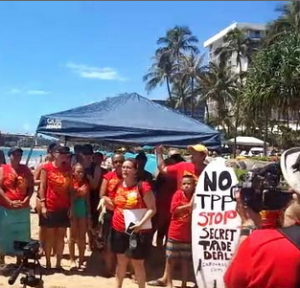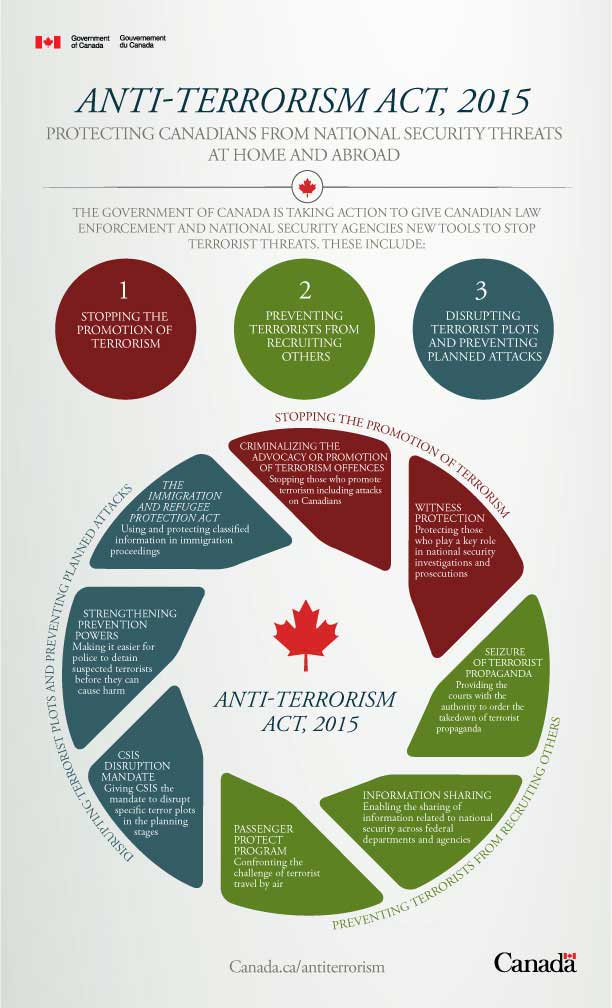Provisions in trade pact may provide legal basis for suing U.S. over tar sands pipeline
Written by Nadia Prupis, staff writer for Common Dreams. Published 8-10-15.

A tar sands site in Alberta, Canada. (Photo: kris krüg/flickr/cc)
TransCanada Corporation, the company behind the controversial Keystone XL tar sands pipeline, is furtively planning its next steps—including suing the U.S. government—if U.S. President Barack Obama rejects the permits which would allow construction of the project to move forward, the Canadian Press reported on Monday.
While the company has publicly maintained hope that Obama will grant it permission to build the pipeline, those close to the project say TransCanada expects a rejection and is quietly considering suing the government under the North Atlantic Free Trade Agreement (NAFTA), using articles in the pact that protect companies from discrimination, unfair or arbitrary treatment, and expropriation.
NAFTA also includes a mechanism known as the Investor-State Dispute Settlement (ISDS), which allows corporations to sue a country for damages based on projected “lost profits” and “expected future profits.” As Common Dreams has previously reported, there are no monetary caps to the potential award.
Experts have warned that TransCanada could bring a NAFTA challenge over Keystone XL. Natural Resources Defense Council international program director Jake Schmidt told Politico in February that such a case was “definitely a possibility.”
Derek Burney, former Canadian ambassador to the U.S. and chief negotiator on the trade deal, as well as its U.S.-Canada predecessor, told Politico at the time, “If the pipeline is actually vetoed on so-called environmental grounds, I think there is a very strong case for a NAFTA challenge.”
But would suing the government under NAFTA work? It’s unlikely.
The Canadian Press continues:
The U.S. government has a 13-0 record in NAFTA cases. A suit would likely fail, cost the company a few million dollars, and possibly antagonize the U.S. government, said David Gantz, who was been a panelist on NAFTA cases and who teaches trade law at the University of Arizona.
….But another expert said the company might as well try. She said a recent decision against the Canadian government in the Bilcon case involving a Nova Scotia quarry could give TransCanada some hope.
“Why not? And see where it goes,” said Debra Steger[.]
Another option on TransCanada’s radar is immediately filing another permit application with the U.S. State Department ahead of the 2016 presidential election.
Opponents of the Trans-Pacific Partnership (TPP), a corporate-friendly agreement between the U.S. and 12 Pacific Rim nations which has been described as “NAFTA on steroids,” have cautioned against including an ISDS mechanism in the still-pending deal.
“Given NAFTA’s record of damage, it is equal parts disgusting and infuriating that now President Barack Obama has joined the corporate Pinocchios who lied about NAFTA in recycling similar claims to try to sell the [TPP],” Lori Wallach, director of Public Citizen’s Global Trade Watch, said in February.
Whenever the announcement comes, the source on the project told the Canadian Press, TransCanada will “let it cool for a while. And then we’d have this more vigorous discussion.”
This work is licensed under a Creative Commons Attribution-Share Alike 3.0 License.








![By National Climatic Data Center (National Ocanic and Atmospheric Administration) [Public domain], via Wikimedia Commons](http://occupyworldwrites.org/wp-content/uploads/2015/07/Perfect_Storm_1991-300x225.gif)



